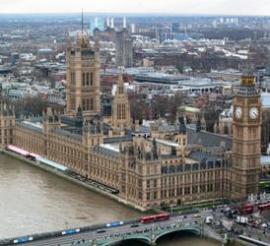Numerous Lords have expressed support for developing lifetime legacies in the UK in a debate which also brought up fears about philanthropy being expected to plug the gaps left by public funding cuts.
In a debate about how to increase philanthropy in the House of Lords, which precedes a Green Paper the government is due to produce on giving this month, a number of Lords called for the removal of red tape around gift aid and for a re-consideration of the value of lifetime legacies for UK major donors.
Conservative Lord Taylor of Holbeach moved to quash concerns raised by a number of peers about whether the government’s desire to increase philanthropy and private giving may be a way for them to fund public services via charitable donations.
“I can reassure the noble Baronesses, Lady Thornton and Lady Pitkeathley, and the right reverend Prelate the Bishop of Newcastle that we do not see philanthropy as replacing the Government's role in the wider society. That is not the thrust of my contribution to the debate, nor, I suspect, that of anyone. We recognise the role of government as the major provider of public service, but as a driver for priorities in social engagement, philanthropy can be an extremely important factor,” he told the House.
Government has role in promoting philanthropy
Crossbench peer Lord Janvin, who called the debate, insisted that a government-led cultural change is critical. “The Government need to find ways of getting across the idea that philanthropy is fundamentally something to be encouraged, recognised and supported, and is not inevitably some form of personal aggrandisement or, at worst, a potential tax scam for the rich. They need to explain that private philanthropy can complement government priorities, not replace them, particularly by investing in those innovative, risk-taking and high-impact charities that are so often at the forefront of social change.”
He added, however, that charities must also work to change the culture of giving by taking casting a critical eye over their approach to fundraising.
“Charities themselves need to take a hard look at their own activities to assess the effectiveness of their fundraising, however hard their development and fundraising teams are working. There are many lessons to be learnt about the need to look after donors, to have a greater understanding of what motivates them, to work out how best to recognise them if they so wish and generally to make donors more central to the activities of the charity itself."
This sentiment was echoed by Labour Baroness Pitkeathley, who said that "too often" fundraising focuses on specific projects, and that charities should view philanthropy more through "the eye of the donor". She called for a code of practice that ensured the needs of the beneficiaries and donors are fulfilled.
Tax breaks to incentivise donors
A number of peers expressed support for tax reform for both individual and corporate donors to help facilitate increased giving. In the same week that the government decided to shut down its Gift Aid Forum, peers also called for more work on gift aid, both simplifying the mechanism and improving public awareness.
On the topic on tax breaks, Baroness Pitkeathley said: “While gift aid is welcome, I agree that the cumbersome process of claiming back has a negative impact on givers and receivers. Transferring a higher percentage of the benefits of major gifts back to donors is strongly to be recommended.
“There is evidence of untapped philanthropic potential in the United Kingdom, but it will not be fulfilled, either in money invested or in results achieved, unless there is great assistance to philanthropists to direct their wealth in a way that satisfies both them and the big society.”
The Baroness went on to suggest that Minister for Civil Society Nick Hurd consider creating a new single body designed to increase giving and inspire more people to enter a lifelong commitment to philanthropy.










